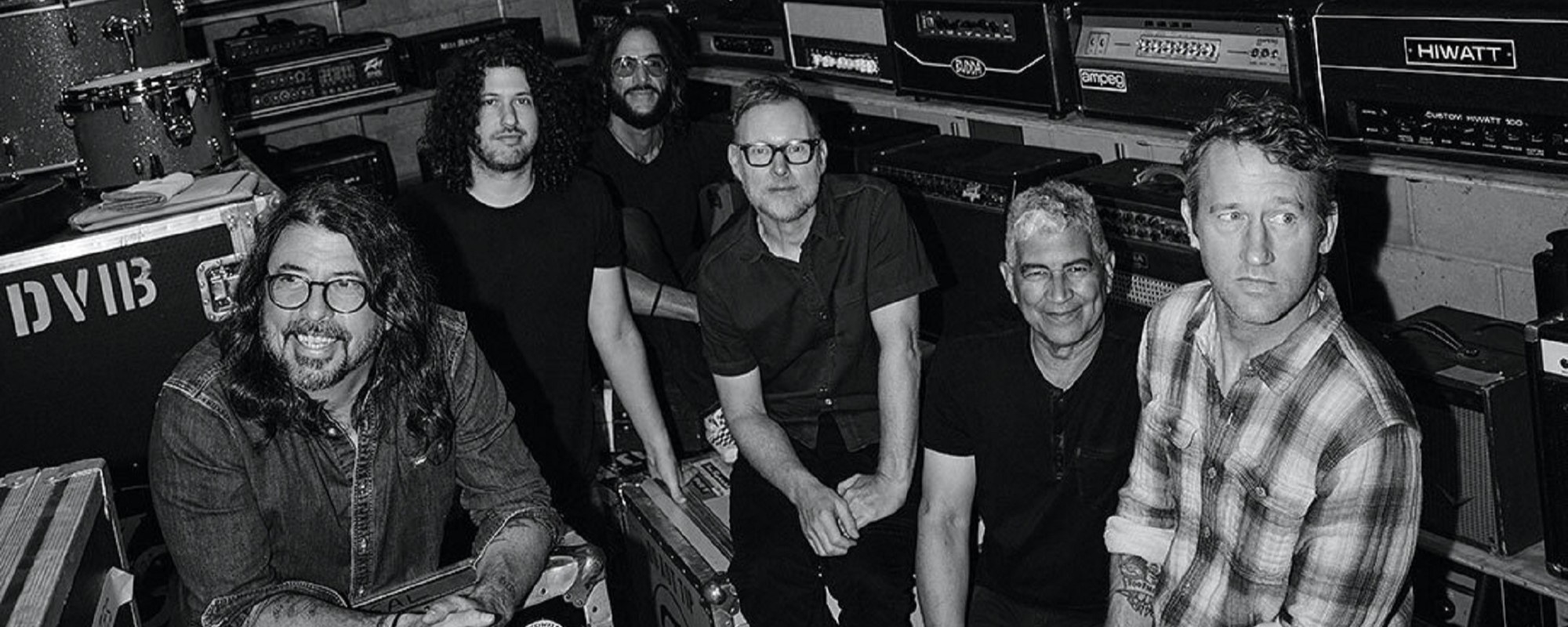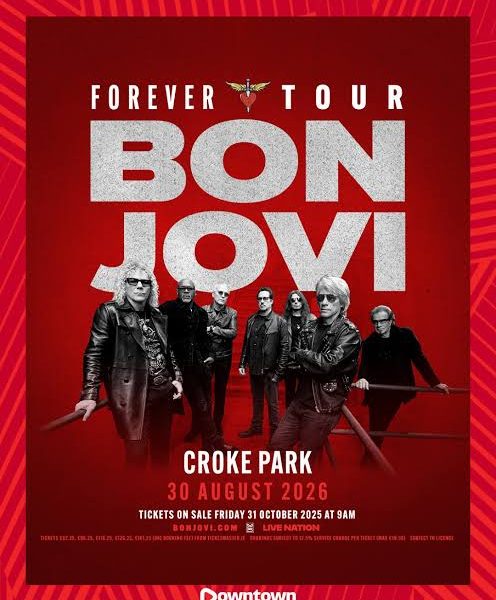“Everlong Kindness: Foo Fighters’ $500 Million Gift to America’s Homeless”
It began, fittingly, with a drumbeat.
A quiet rhythm in the early hours of a gray Los Angeles morning — rain tapping against the warehouse roof of Studio 606, where the Foo Fighters had gathered for what was supposed to be a routine rehearsal. Instead, the room buzzed with something electric, something heavy. Dave Grohl sat at the center of it all, hair pulled back, guitar resting on his lap, eyes fixed on nothing and everything at once.
“Guys,” he finally said, his voice soft but charged. “What if we did something… bigger than music?”
The band had done big things before — sold-out stadium tours, charity concerts, Grammy wins — but nothing like what Grohl was about to suggest.
“We’ve got the means,” he continued, glancing at bassist Nate Mendel and drummer Taylor Hawkins’ portrait hanging above the studio’s mixing console — a silent tribute to their late brother in rhythm. “Taylor always said we should use what we’ve built to build others up. I think it’s time.”
Within weeks, that quiet moment would grow into one of the most stunning philanthropic gestures in modern music history: a $500 million donation by the Foo Fighters to combat homelessness across the United States.
—
The Announcement That Shook the World
When the news broke, it didn’t come through a press conference or an exclusive interview. It came through a handwritten note, posted to the band’s official website and social media accounts:
> “To the people who sing with us, cry with us, live with us — we’ve decided to put our money where our hearts have always been. $500 million to help end homelessness. This isn’t charity. It’s community. Love, always — Foo Fighters.”
The internet erupted within seconds. Fans shared the post like wildfire, hashtags like #EverlongHope and #FooFightersForHumanity trending across platforms. Celebrities, politicians, and everyday people alike weighed in — some stunned, others moved to tears.
Late-night hosts dedicated entire monologues to the gesture. One headline read: “Foo Fighters Prove Rock Still Has a Soul.”
—
Behind the Gift
Reporters scrambled to uncover how the donation came together. What they found was a story years in the making.
In 2018, during a break between tours, Grohl had quietly volunteered at a homeless outreach center in downtown Los Angeles. He spent nights grilling food for residents, often refusing to be recognized. Staff recall him insisting on cleaning up afterward, staying late to talk with people about their stories.
One of them, a man named Carlos Vega, remembered Grohl’s words vividly:
> “He told me, ‘Man, no one should have to fight this hard just to feel human.’ Then he hugged me like an old friend. I didn’t even realize who he was until someone told me after.”
That experience haunted Grohl — not in a dark way, but in the kind that keeps you awake, asking yourself what you could do differently. The pandemic years only deepened that conviction as tent cities grew under freeways and along sidewalks in nearly every U.S. city.
So, when the band’s management discussed future investments and touring revenue from their 30th-anniversary celebrations, Grohl made a different pitch.
“Let’s not build another house,” he said. “Let’s build homes for others.”
—
The Mechanics of a Miracle
The Foo Fighters partnered with several organizations, including Habitat for Humanity, The National Alliance to End Homelessness, and Community Solutions, to ensure the funds would have tangible, lasting impact.
Of the $500 million, $200 million would go directly into creating sustainable housing developments in 20 major cities — eco-friendly, community-centered spaces with built-in support systems like healthcare, job training, and addiction recovery. Another $150 million was earmarked for expanding emergency shelters and transitional programs.
But the final $150 million? That was Grohl’s idea entirely — a “Human Dignity Fund”, designed to be distributed directly to people in crisis through prepaid debit cards, no strings attached. “Sometimes,” he said, “what someone needs isn’t a lecture or a plan — it’s just a little cash to get through the night.”
Economists and policy experts called the structure “revolutionary.” Charities called it “transformative.” Fans called it “so Foo Fighters.”
—
The Music Behind the Mission
Alongside the donation, the band announced a companion project — a new album titled Shelter Songs, featuring collaborations with artists from every corner of the country, from Bruce Springsteen to Billie Eilish. Every dollar from album sales would go to expanding the housing fund.
The lead single, “No One Left Outside,” was a haunting anthem — a blend of thunderous guitars and aching vulnerability. Grohl’s voice cracked on the chorus:
> “We all need a place to belong / We all bleed the same old song / If love’s the fire, then let it guide / No one should be left outside.”
The song became an instant rallying cry. At concerts, tens of thousands of fans held up cardboard signs reading “Homes for All” as Grohl wept openly on stage.
—
The Ripple Effect
Within months of the announcement, cities began to move. Mayors cited the Foo Fighters’ donation as inspiration to accelerate public housing projects. Private corporations followed suit, pledging millions more.
In Austin, a developer built an entire block of affordable housing and named it “Hawkins Haven.” In Seattle, a long-abandoned church reopened as a shelter called “Everlong House.”
And in Los Angeles, where the idea first sparked, a woman named Angela — once living under an overpass — moved into her first apartment in fifteen years. “When they told me the rent was covered by some rock band,” she said through tears, “I thought they were joking. But now I sleep in a bed. I have a key. I feel human again.”
—
Grohl Speaks
When Dave Grohl finally appeared publicly to address the movement he’d set in motion, it was during a small press event outside one of the new housing complexes in San Francisco. Dressed simply in jeans and a flannel, he stood beside families moving into their new homes.
“This isn’t about the Foo Fighters,” he said. “It’s about fighting for the people we forget. We’ve played every stadium in this country. We’ve seen the beauty and the pain. We’ve seen how close people live to the edge. Music saved our lives — maybe it can help save someone else’s too.”
He paused, looking at the rows of freshly painted apartments behind him. “Rock and roll has always been about rebellion,” he added with a faint smile. “Well, maybe the real rebellion now is kindness.”
—
A Legacy Beyond Music
Months later, Rolling Stone would call it “the greatest humanitarian act in rock history.” But for Grohl and the band, that wasn’t the point.
They didn’t want a legacy of charts and records. They wanted one of compassion — proof that loud guitars could still shake something deeper than arenas.
As one mural in downtown LA now reads, painted beneath Grohl’s silhouette holding a guitar like a hammer:
> “You built us music. Then you built us homes.”
And in that moment, perhaps the Foo Fighters did what rockstars rarely do — they turned fame into fuel, fortune into faith, and music into a movement.
Because when the noise fades and the lights go down, what remains isn’t the echo of applause.
It’s the sound of doors opening.


